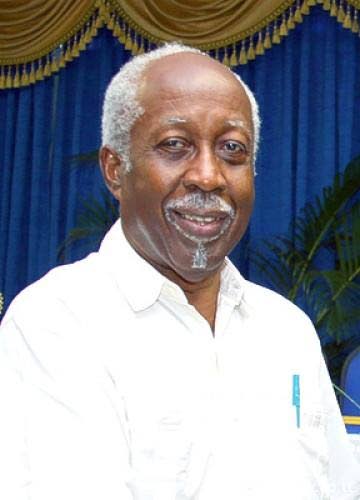The Putin output

REGINALD DUMAS
Pt II
ARTICLE 2 of the UN Charter calls on member states to “settle their international disputes by peaceful means in such a manner that international peace and security, and justice, are not endangered.” They are also enjoined to “refrain in their international relations from the threat or use of force against the territorial integrity or political independence of any state, or in any other manner inconsistent with the purposes of the (UN).”
In Article 24, states “confer on the Security Council primary responsibility for the maintenance of international peace and security, and agree that in carrying out its duties under this responsibility, the…council acts on their behalf.” Russia is not only a founder of the UN, it is one of the five permanent members of the council – one of the quintet of “leaders” (if one may venture to call them that) – supposed to show us lesser peoples the way of international co-operation and dialogue. Yet now, when its perceived national interests are concerned, Russia has torn to bits the very international principles it has been mandated to uphold and practise.
Its brutal attack on Ukraine has widely and rightly been condemned. Sanctions of various kinds have been imposed. So far, none of this has stopped Vladimir Putin’s determination to punish Ukraine for what he is convinced is its undermining of Russia and, perhaps equally important, of his
amour propre. If nothing has come of the talks held by the two sides, it’s because of his insistence that Ukraine accepts his “demands” wholesale. Give-and-take be damned.
What are some of the likely effects of Putin’s venture? Sanctions are already biting, and the Russian economy is being adversely affected. So are other economies. The situation will get worse. Further, even if Russia comes to control all of Ukraine and instal a puppet government (which few will recognise), it will face a sullen, disaffected population (some jubilating Russophones excepted), which will significantly resort to non-co-operation and insurgency, with active western assistance.
Far from cowing most Ukrainians, including the more than two million who have fled as refugees, Putin will have strengthened their nationalism and driven them towards the very West he has been hoping to keep at bay. (Ukraine is now seeking EU membership.)
What about the international community? On March 2 the UN General Assembly voted massively (141 to five) to deplore Russian aggression against Ukraine and demand that Russia “immediately, completely and unconditionally withdraw all of its forces” from that country. It was a spectacular global rebuff of a UN founder, a “leader,” for its blatant violation of its UN Charter responsibility. With other Caricom states, TT co-sponsored the resolution. A week earlier, the PM of St Vincent and the Grenadines, Dr Ralph Gonsalves, had written Putin urging him to cease his “special operation,” as Putin calls it.
Lacking military might and international clout, small states like ours must rely on the UN Charter principles of justice, international law, the peaceful settlement of disputes, etc. Caricom has declared our region a “zone of peace.” Declarations are fine, but we must always be vigilant. We must also be balanced and consistent, if we are truly non-aligned. But do you recall Caricom’s disordered stance at the time of the 1983 US-led invasion of Grenada? When TT, Bahamas, Belize and Guyana stood in opposition while many others enthusiastically threw in their political and military lot with Washington? In this “zone of peace?”
There’s always reality to confront, however. The UN Charter may be long on principles, but when push comes to shove, countries act in what they see as their self-interest. That is what Eugenia Charles, Edward Seaga and Ronald Reagan did in 1983; it’s what Putin is doing today. The UN has over the decades somewhat modified many extreme expressions of self-interest; it has not eliminated them, as we see now.
Putin cannot abide what he sees as Ukraine’s subversion of Russia – why, even the Ukrainian Orthodox Church has jettisoned the traditional leadership of the Russian Church! Ukraine must therefore be brought to heel, and made to understand clearly that its destiny lies with, or in, Russia, not the West. And the West, which encouraged its misbehaviour, must be taught a lesson.
The issue goes beyond geopolitics; it’s also history, religion, national pride, ego, emotion. Sanctions and UN resolutions and appeals from world leaders therefore aren’t likely to stop Putin. If Ukraine is effectively flattened, then Balkanised, in the process, if thousands of innocents are killed and millions forced into exile, if schools, hospitals and residential areas are reduced to rubble, if a nuclear disaster occurs, if the world economy takes a further beating, don’t blame him.
It would be all the fault of Ukraine and the West.


Comments
"The Putin output"